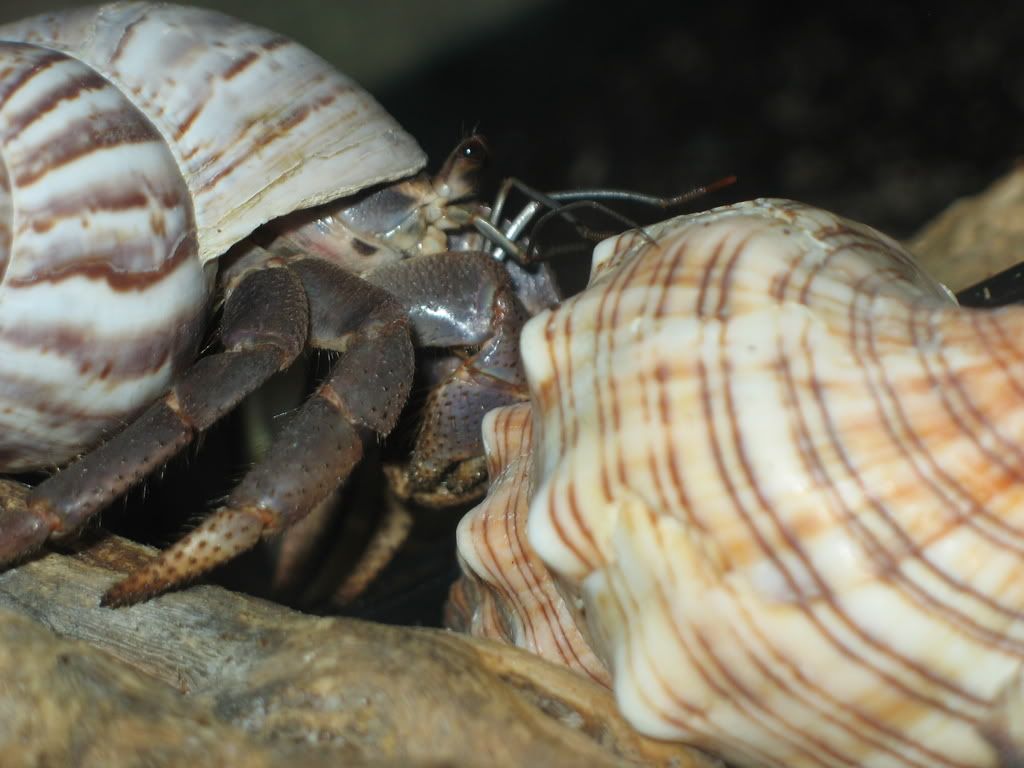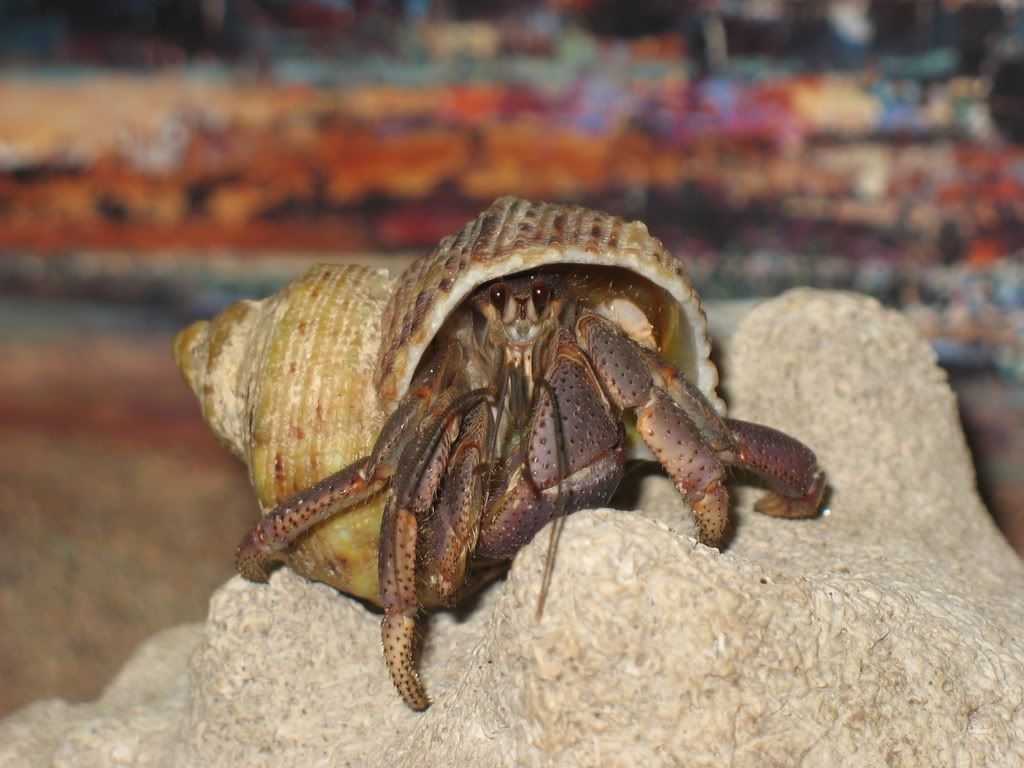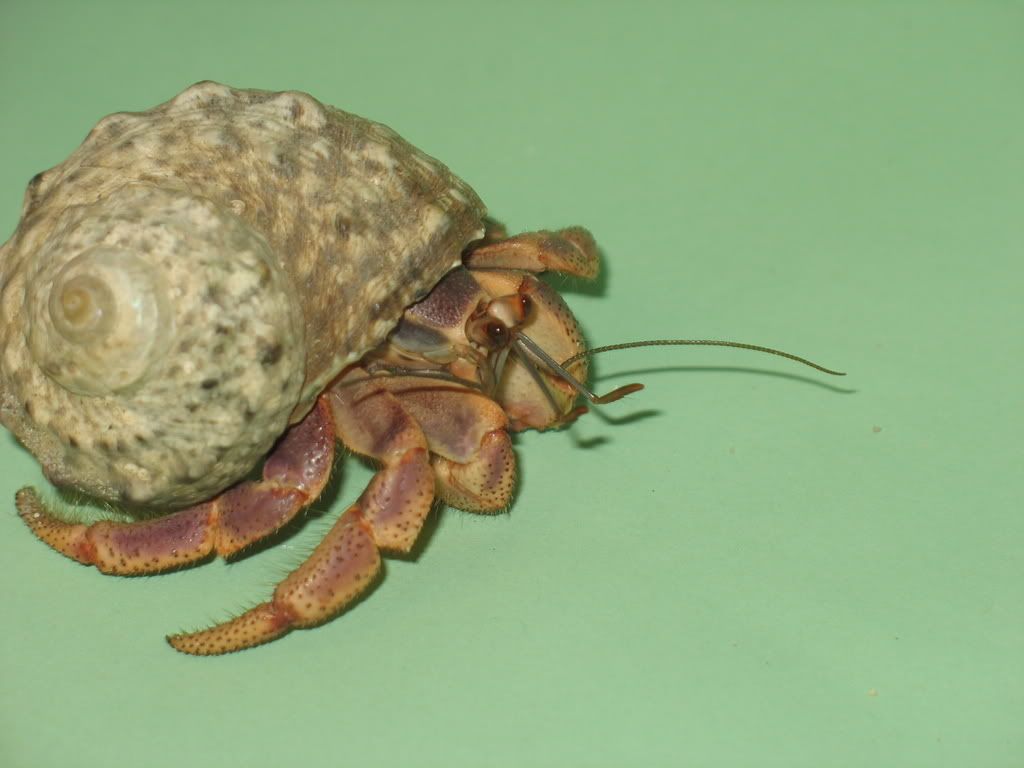The pet industry has established certain ideal ratios for balanced nutrition with regard to many animals kept as pets such as dogs, cats, and horses. For instance, I am told that dogs should have a 1.1:1 ratio of calcium to phosphate. The exact ratios for hermit crab nutrition have not been firmly established in part because their nutritional needs depend greatly on the changes in their environment (time of year, temperature, etc.) and in their own body processes (such as moulting, egg-laying, etc.).
The absence of established numeric values frustrates some crab-keepers who formulate their own homemade meals. But, for most of us, a series of numeric values to calculate wouldn’t be very practical either. We do know that protein and calcium should make up a considerable part of their daily intake and we know that certain minerals like copper and nutrients such as iodine and zeaxanthin are important to specific biological functions. The prevailing crab wisdom says that if you offer a large variety of nutritious, safe foods, then the crabs will pick and choose for a healthy balance. Since their nutritional needs fluctuate and those fluctuations are difficult to predict, having availability to whatever foods those physiological changes might require is vital. Offering many different foods is key to covering a wide range of nutrients.
Subscribe to:
Post Comments (Atom)
























2 comments:
The commonly excepted ration for reptiles of calcium to phosphorus is 1.5:1 and considering reptiles need even less calcium than crabs I would consider 2:1 to be good. In real life terms that means cut back on the broccoli, beans and most high protein vegetables and add more calcium like egg shells, reptile calcium supplement and cuddle bone. Another part of this puzzle often overlooked is that calcium can not be processed in the body of a crab without vitamin D. Being nocturnal they need less than say a lizard, but still need some. Cod liver oil, fish, and short walks on a sunny day with a crab are the easiest sources. Also commercial calcium supplements for reptiles usually have D added to them.
Thank you blaze88 for the info regarding reptile appropriate ratios. I recently read that mushrooms are a great source of vitamin D. I've also been a big advocate for exposure to natural sunlight. Crabs won't spend a lot of time in the light, but I always throw open all of the curtains near my crabitat so they get lots of indirect sunlight. The new trend to offer dairy will also help supplement vitamin D.
Post a Comment